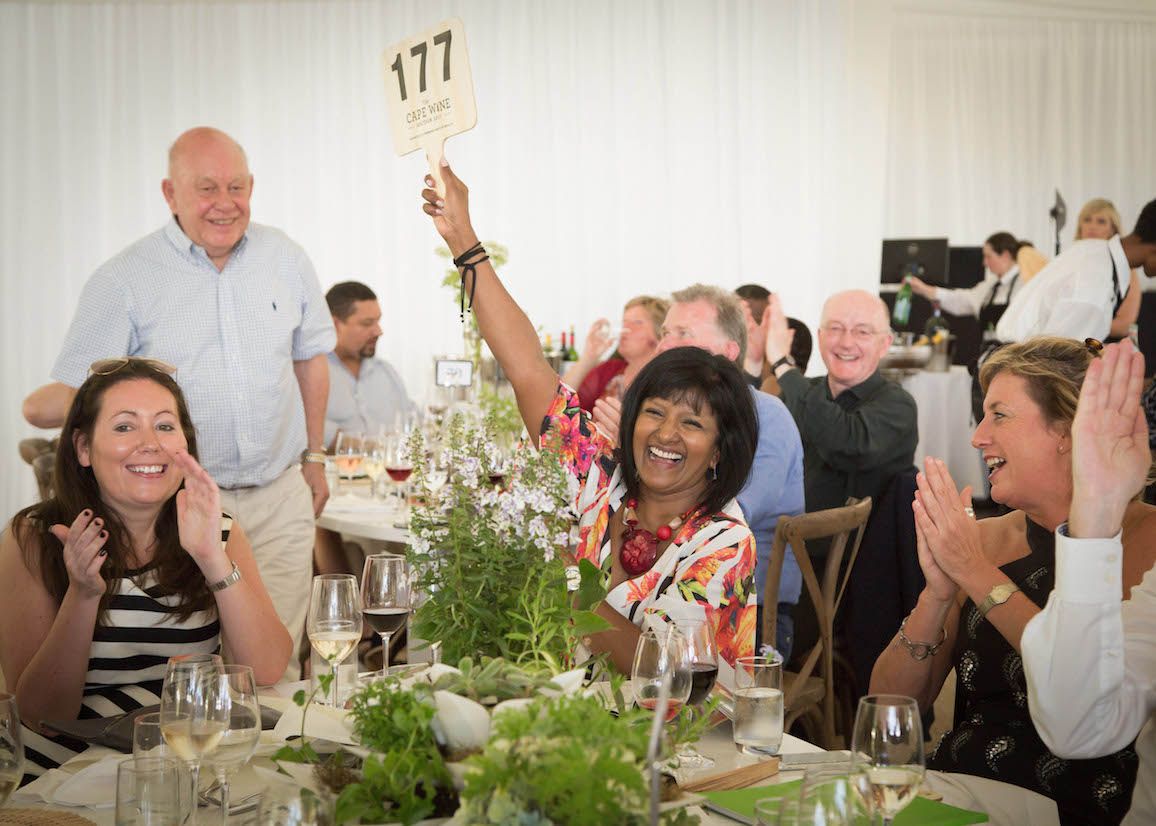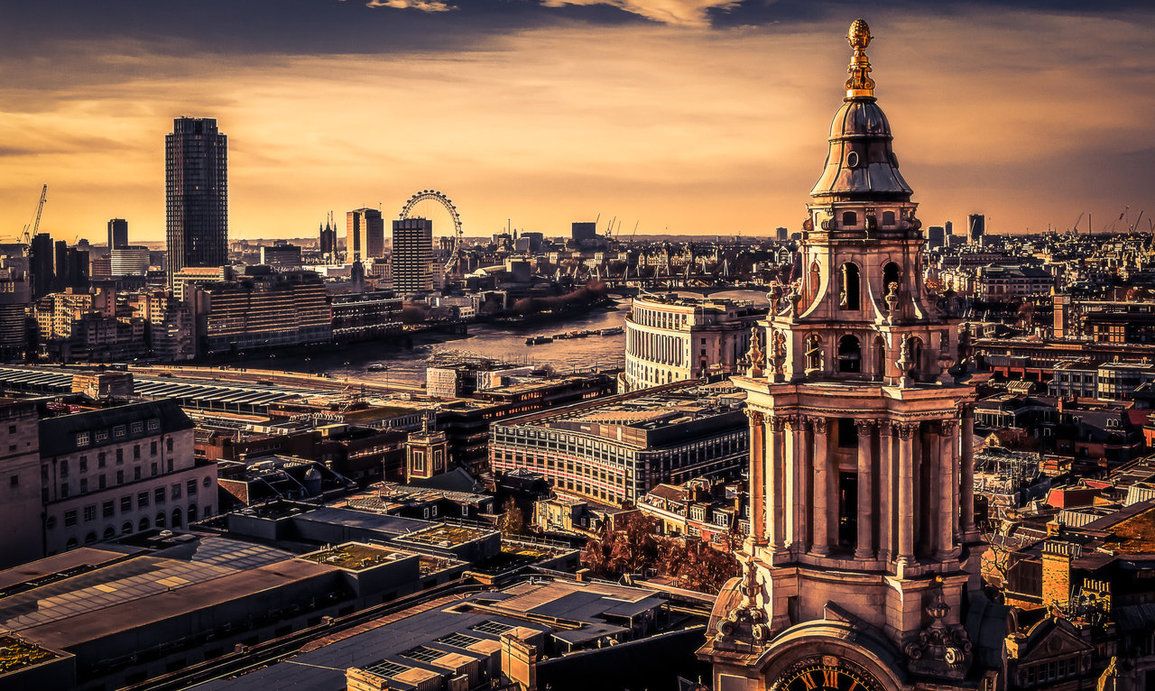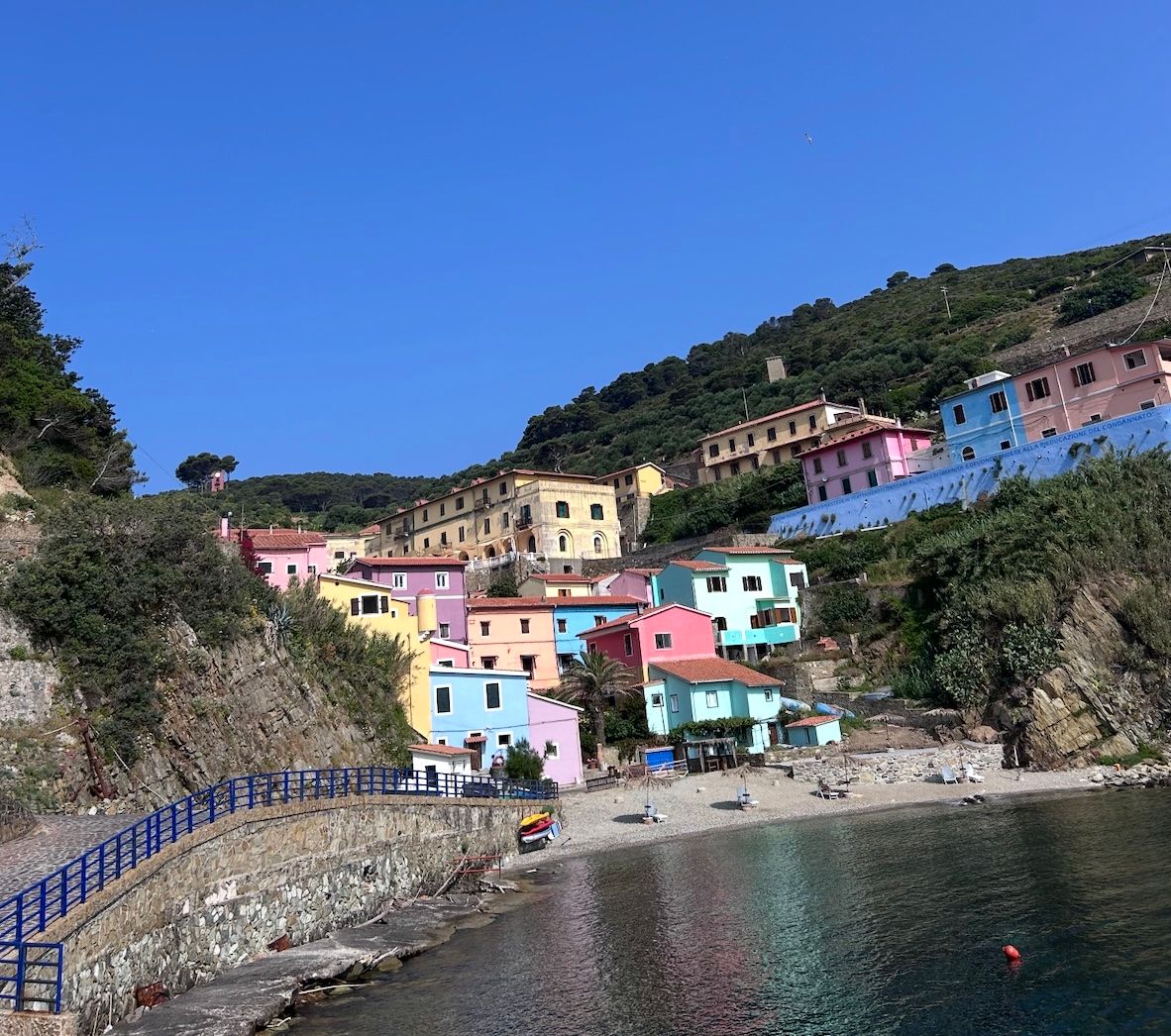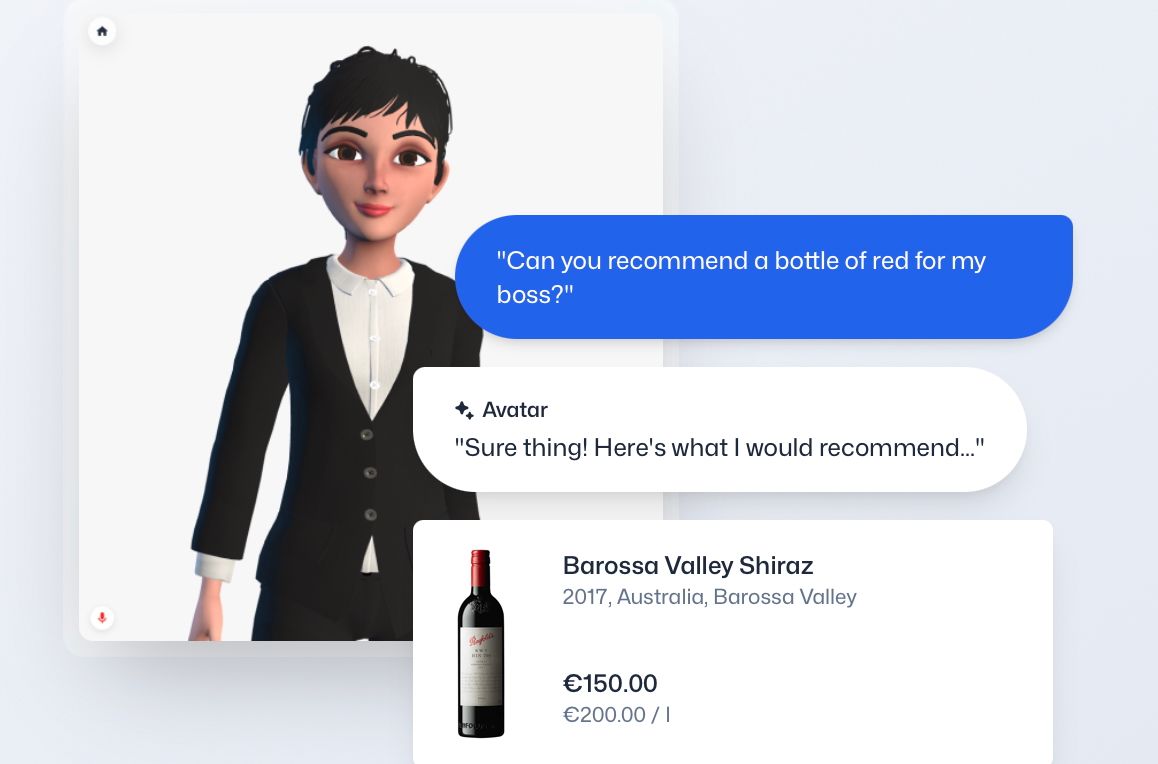The Cape Wine Auction has managed to raise proceeds by 50% year on year. So how does creator Mike Ratcliffe better that?
Wine auctions have become part of the fabric in South Africa in the last few decades, with the Nederburg Auction (first staged in 1975) and the Cape Winemakers Guild (1982) both well-entrenched.
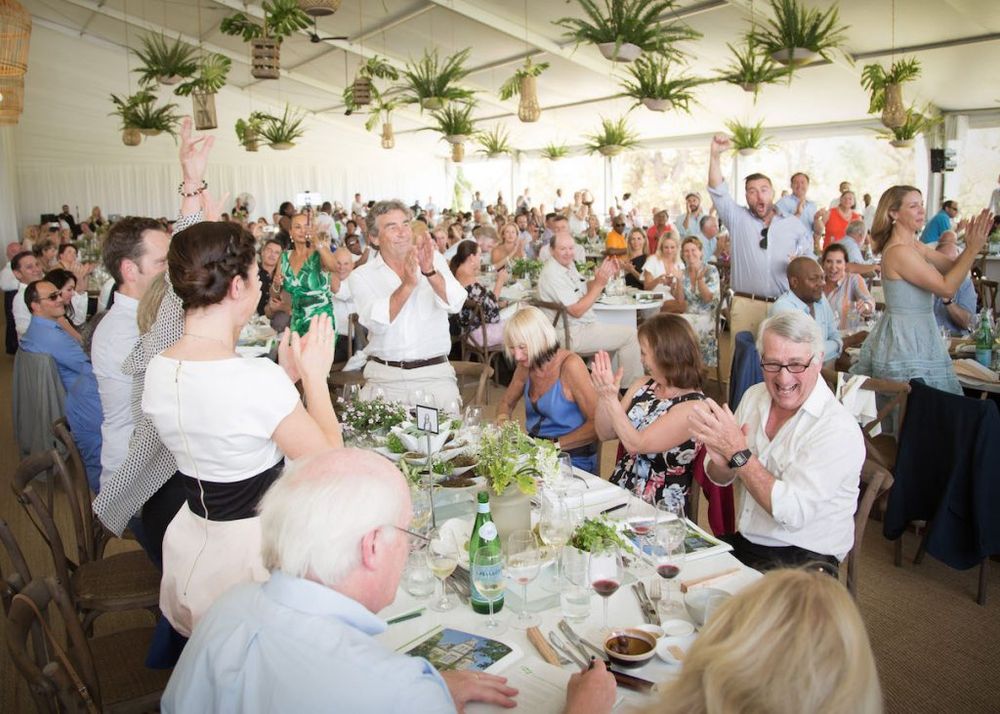
Completing a notable triumvirate is the Cape Wine Auction, which is now only in its fourth year but keeps raising the bar as far as philanthropy is concerned.
In mid-February, it raised a staggering R22.3m (around £1.3m) at Anthonij Rupert Wines near Franschhoek, every rand of which will go to supporting and furthering education for disadvantaged children in the winelands of the western Cape.
What marks the Cape Wine Auction out from the other two auctions is that, whereas they donate a relatively small percentage of their proceeds to charitable purposes, the Cape Wine Auction gives 100%.
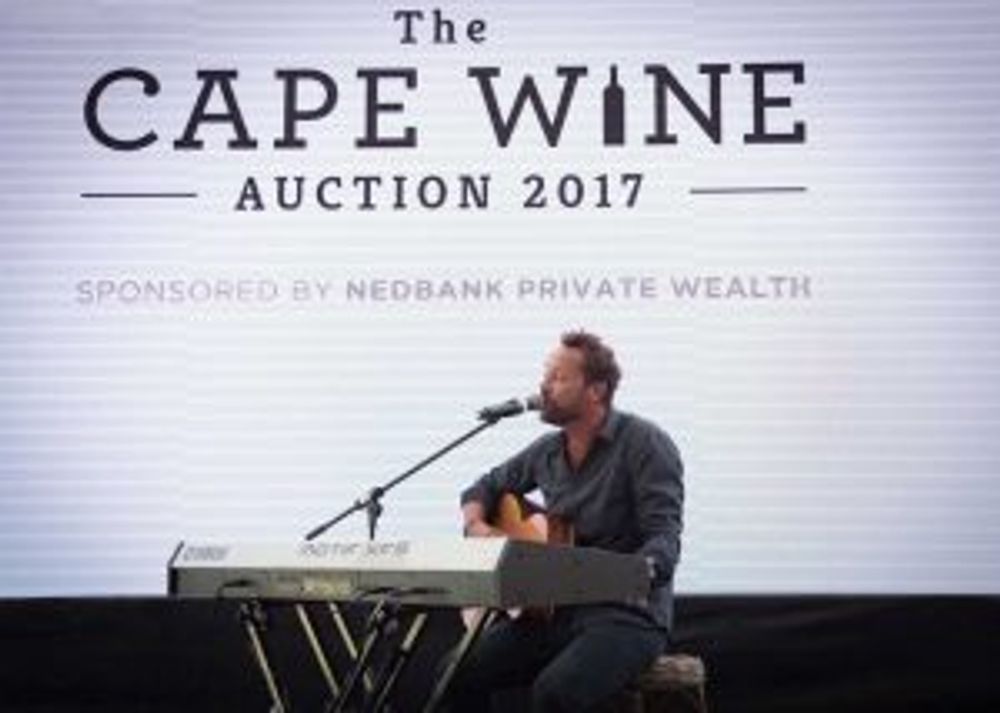
Watershed lead singer Craig Hinds
Unlike the other two, it has no commercial motivation. Not does it have any overheads, the cost of staging it being covered by two sponsors, American Express and Nedbank Private Wealth.
This is what persuades South African and international donors to give so generously in the view of Mike Ratcliffe, who dreamt up the idea of Cape Wine Auction in 2013 and co-ordinates it highly capably with five other trustees.
“It’s been a team effort reaching out and tapping into philanthropic networks,” he told The Buyer. The first Cape Wine Auction event in 2014 raised R7m, the second in 2015 R10m and the third last year R15m.
“If you said a few years ago that somebody would pay R3m for a lot as they just did [£170,000 for a week’s stay in the Napa Valley], I would not have believed it. But people really feel they are getting bang for their buck in charitable terms. For most charities, even 20% costs are considered completely reasonable, but ours are zero percent. Everything is done for free, even our accounting [by PWC].”
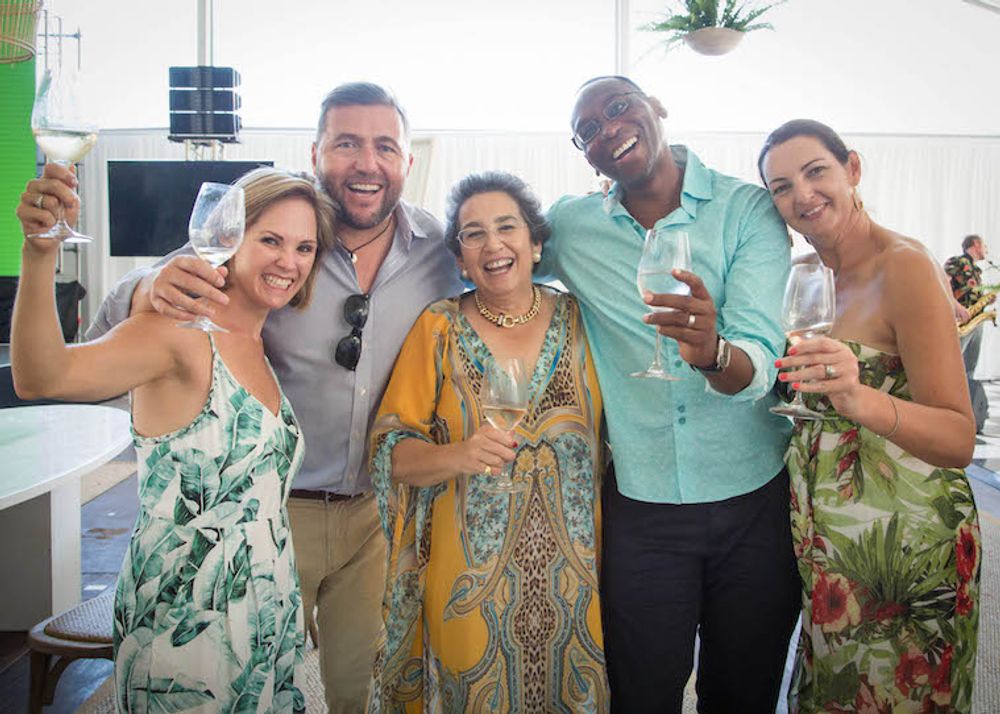
Left to right: Darielle Robertson (Auction Director), trustees Mike Ratcliffe, Wendy Appelbaum and Raymond Ndlovu, and Andi Norton (Trust Facilitator)
Ratcliffe, who is managing director of the Warwick Estate winery in Stellenbosch, revealed that the Cape Wine Auction trustees’ mandate is to spend 85% of funds raised in the following financial year. Nineteen projects have been earmarked, but “if another needy charity comes along, we’ll pay out the balance of 15%.”
And the fact that CWA gets so many approaches underlines how badly help is needed in the western Cape, where all of the money is spent.
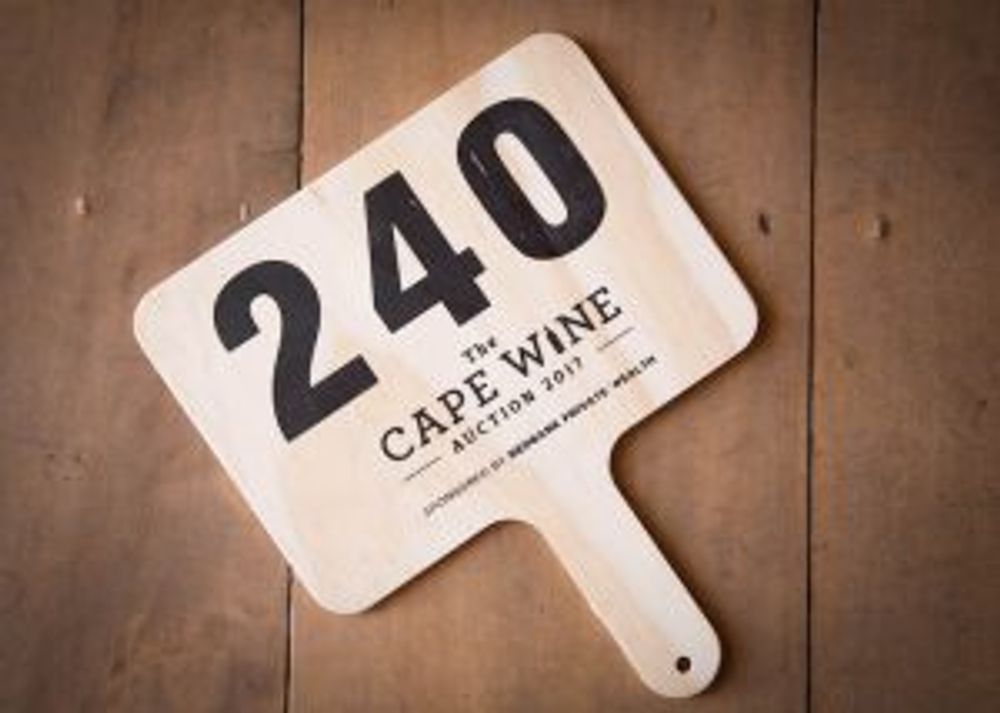
Corporate sponsorship means 100% of the money raised goes to charity
One uplifting example came to my attention on a visit last week to the Hemel-en-Aarde Valley, home to well-known wineries such as Hamilton Russell, Newton Johnson, Sumaridge and Creation.
Until last month, there was no pre-school kindergarten in the valley for kids up to the age of five. Thanks to the Pebbles Project, one of those supported by Cape Wine Auction, one was constructed in an old farmhouse.
Getting the children there was another major issue, but thanks to Carolyn Martin, co-owner of Creation, R565,000 was raised through a cellar door appeal to buy a bus.
“We now have 105 kids at this pre-school,” Martin said. “The Pebbles Project finances both that and after-school care for seven to 13-year olds. As many as 54 attend that, and parents have told me their kids learn more there than at school. Thirty of them couldn’t read but were taught how to do so in three weeks by a retired headmistress we found.”
Both the Nederburg and Cape Winemakers’ Guild (CWG) auctions contribute to worthy causes.
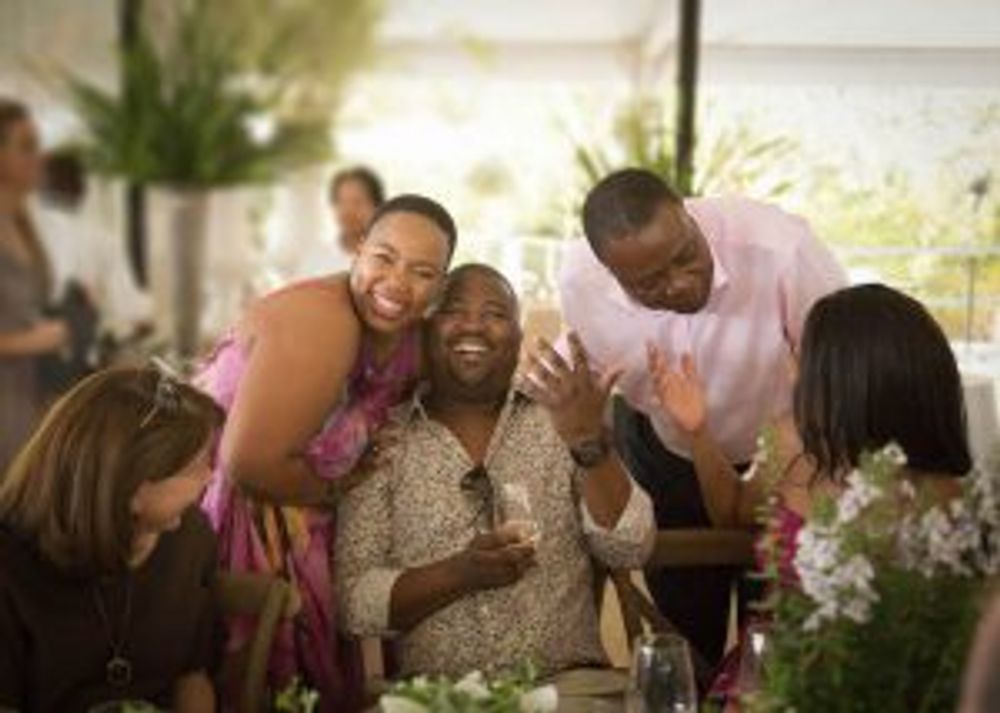
The former raised just over R500,000 (around £30,000) at its last staging in September 2016 for two charitable projects, the Breytenbach Centre in Wellington and ‘Hope Through Action’ in Paarl, while the latter funds three-year protege internships for promising would-be winemakers and viticulturalists.
CWG has supported 24 such proteges since 2006, having appointed four new ones in early February, and also gives bursaries to final year and post-graduate oenology students.
Nederburg sells some of the best mature South African wine to both the trade and private buyers, while the CWG auction (every October) features small quantities of super premium wine made by its 49 members, all leading winemakers who have to be invited to join the Guild.
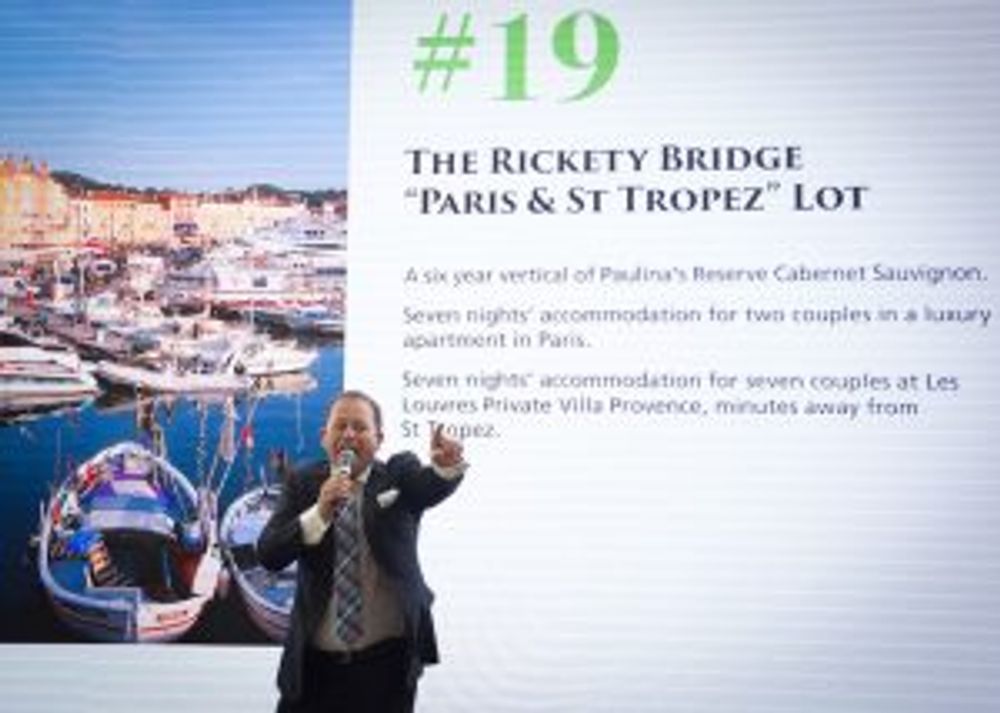
The Cape Wine Auction, unashamedly the brashest of the three auctions, sells off some fine donated South African and international wine, as well as stays in luxurious international establishments and locations. It has made a remarkable impact in four years, and the indefatigable Ratcliffe is pondering how to maintain the auction’s remarkable 50% year-on-year increase in donations.
What chance R33m next year?
That really would be cause for celebration for the children of the western Cape’s winelands.
